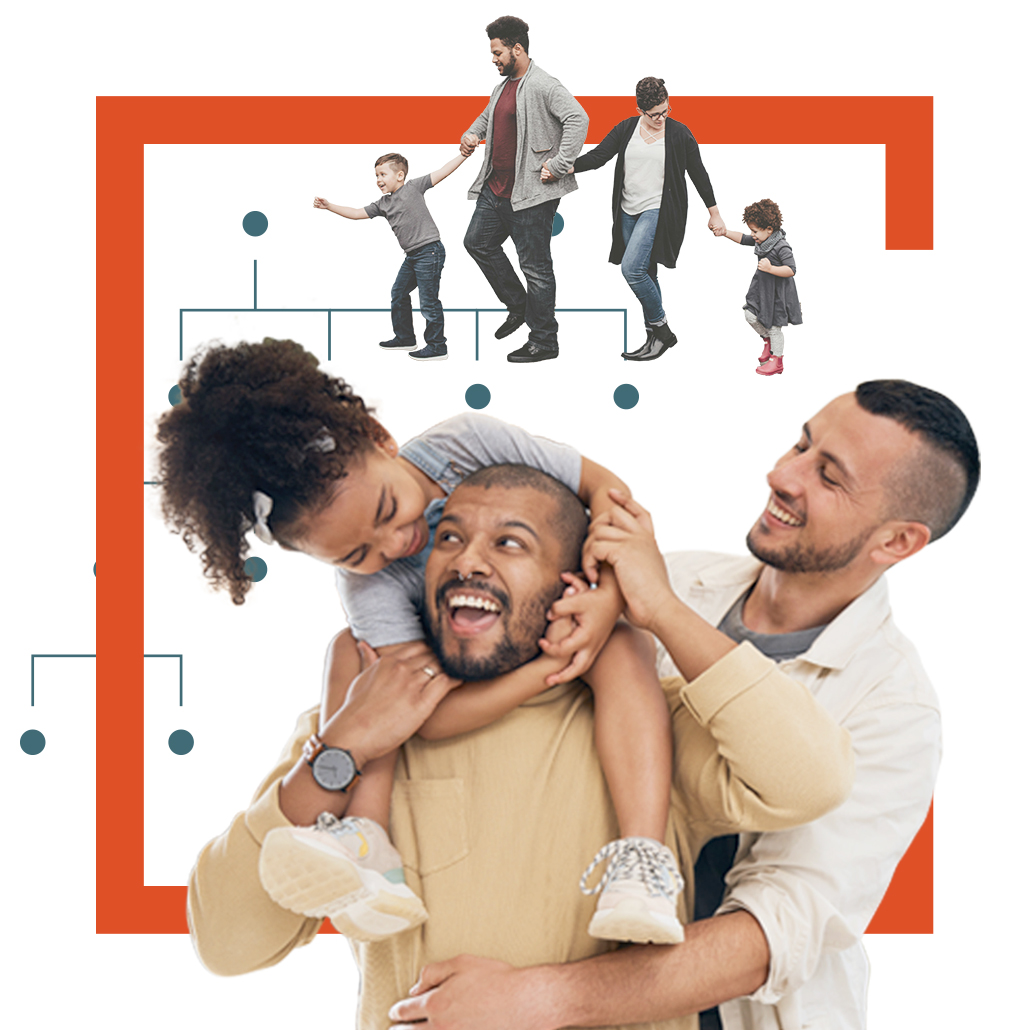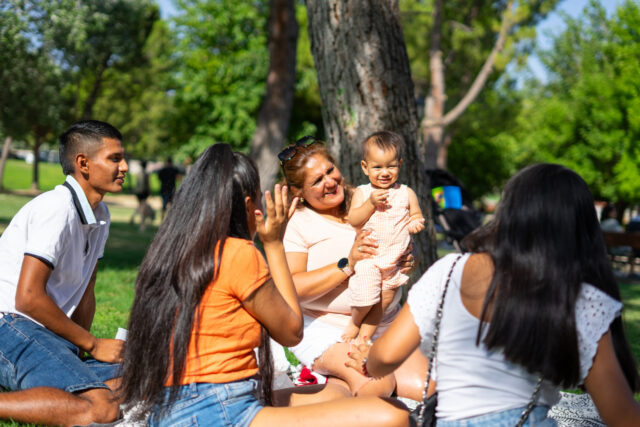Good family policy is good public policy
If people often think of families as a private affair, how can we build demand for public policies that support them? Here you can explore topics like two-gen approaches, foster care and transition-age youth, developmental relationships, family separation, and more.

What the Research Tells Us
Expand the mental model of the “family bubble.”
Using phrasing like “all the people in children’s lives” or “parents, teachers, coaches, and caregivers” reminds people that families and communities are interdependent. Depict families in ways that show the community environments and institutions that shape their experiences.
Frame family engagement as an interdependent partnership between schools, communities, and families.
This helps educators see how engagement lightens their load, rather than creating an extra burden, and builds understanding that effective engagement depends on policies, not just parents.
Talk about relationships as the “roots of success” for young people.
Because the public lacks ways to think about the many types of relationships that are essential for youth development, a metaphor helps. Compare developmental relationships to the “roots” that provide strength, stability, and nourishment—all of which support young people as they grow.
